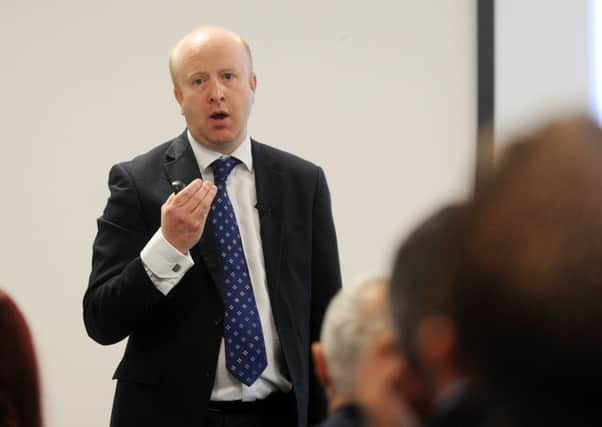‘City centres are the science parks of the 21st century’


Speaking at an Innovation Network event co-hosted by Leeds Beckett University and The Yorkshire Post, Tom Bridges addressed what he called some of the “myths” of public policy planning, and said that one of them was that it was a good idea to build science parks.
“We already have one and we’re sat in the middle of it, right here in Leeds city centre,” he said.
Advertisement
Hide AdAdvertisement
Hide Ad“There’s real evidence that knowledge-intensive jobs and functions are moving into city centres. Over half the jobs in Leeds city centre are in knowledge-intensive business services, compared with 25 per cent in the economy as a whole.
“Before, people who invented things would drive to their workplace in out-of-town business parks and generate ideas that they would keep secret within their buildings. But now they’re coming into the city centres, mingling, exchanging ideas in the hyper-caffeinated spaces between the buildings, and I think that has real implications for the way we treat city centres in terms of public policy.”
Mr Bridges also said that if the Northern Powerhouse is to result in an innovative economy, the Government would have to address the North-South divide in spending on research and development (R&D).
“In 2013, the Government spent £605m on R&D – including higher education – in Yorkshire, but more than double that in Scotland. In the North of England it spent £1.5bn, but in London, the South East and East of England it spent more than £3bn. This shows that the Government are spending a disproportionate amount of money in Scotland and London.
Advertisement
Hide AdAdvertisement
Hide Ad“The government have quite rightly identified transport as a huge priority of the devolution agenda, but I think addressing some of these disparities in spending on R&D and innovation also needs to be up there, because only by doing this will we boost the anchor institutions in terms of government and universities, that can help them work with the private sector to create a more innovative economy.”
Mr Bridges also said that too much emphasis was put on growth sectors, and warned against concentrating too narrowly on the Government’s ‘eight great technologies’.
“In Leeds City Region we have a broad-based economy, and that’s a good thing because some of the really interesting areas of innovation are where different sectors come together, for example the interface between manufacturing and business services – manuservices – and financial technology [fintech].”
Mr Bridges was one of five speakers at the event. The others were: John Sykes, of Leeds law firm Lupton Fawcett Denison Till; Luke Sheriff of KPMG; Prof Christopher Prince, DEan and Pro Vice Chancellor of Leeds Beckett University; and Alun Rogers, co-founder of Risual, a Microsoft partner.